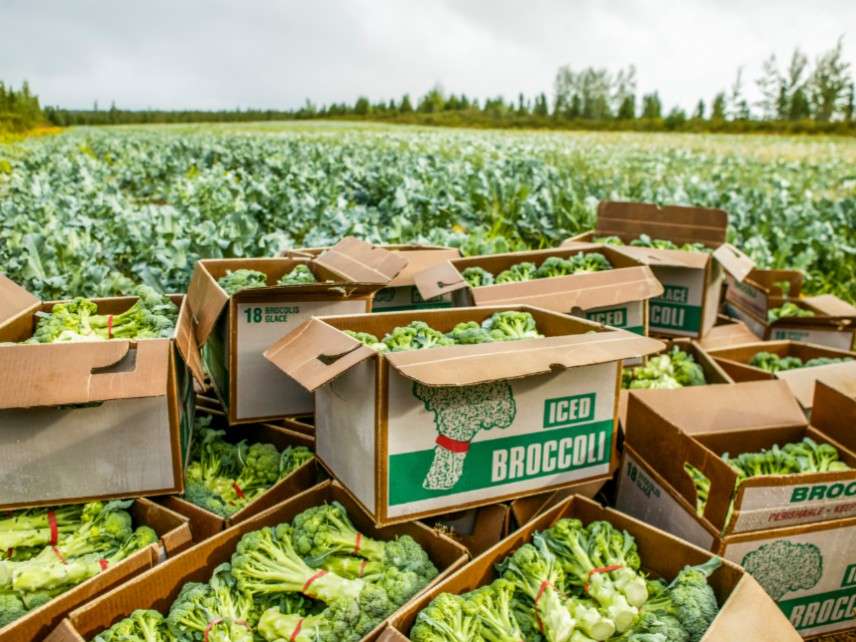New Canadian Food-Safety Law Could Spell Trouble for Small Producers
Small producers are already feeling the pain of Canada's new food safety law.

Earlier this week, Canada rolled out sweeping new food regulations, adopted under a law dubbed the Safe Food for Canadians Act (SFCA). The regulations will be phased in over a period of several years.
The SFCA, which became law in 2012, is intended to prevent foodborne illness and allow for more efficient recalls of unsafe food. The law establishes new requirements for licensing, preventative controls, and traceability for food imports and foods shipped or sold across territorial and provincial boundaries. It also combines several formerly disparate laws—ones pertaining to food labeling and packaging, meat inspection, seafood inspection, and agricultural products—under one umbrella.
Some commentators have likened SFCA to America's Food Safety Modernization Act (FSMA), noting, for example, that FSMA (reviled by me and others) and SFCA share "similar themes" and "common aspects." These similarities are enough that SFCA has been labeled Canada's "Own FSMA." Still, given that SFCA includes oversight of meat inspection—which is regulated in the United States by the USDA, rather than the FDA—the SFCA's food-safety oversight far exceeds that of FSMA.
Notably, rates of foodborne illness in Canada—where one in eight people fall ill from foodborne illness each year— are lower than those in the United States, where one in six are impacted.
Some view SFCA with optimism, particularly because its streamlines several existing laws and regulations.
"The primary rationale for SFCA is to unite a bizarre constellation of acts and regulations under one legislative and regulatory roof," says Glenford Jameson, a leading Canadian food lawyer (and fellow Alvvays fan) in Toronto, in an email to me this week. "In Canada, we have a single enforcement body—the Canadian Food Inspection Agency (CFIA)—and that body had been working with a patchwork of legislation that had at least four different definitions of what a label is, to say nothing of inspection powers, enforcement continuums, and the like."
That harmonizing and streamlining of laws and regulations will be good for Canadian food businesses and for importers, including those in the U.S., says Jameson. Indeed, national and provincial Canadian laws have long been seen as a key barrier to success for domestic and foreign food companies wanting to do business in the country. In theory, SFCA should help grease the skids of trade. That's one reason large Canadian food producers, which helped draft SFCA, are generally pleased with the regulations.
But some small farmers and food producers worry SFCA is just another tangle of red tape. And they're concerned about the law's impact on their bottom line.
SFCA rules have already forced one award-winning cheesemaker, That Dutchman's Cheese Farm in Nova Scotia, to do away with shipments to other provinces. That's because an exemption that had allowed for shipments from one province to another no longer exists under the new rules.
Owner Willem van den Hoek told Global News last week that the change, coupled with burdensome new paperwork and testing requirements for obtaining a national license, would probably mean he'll have to lay off staff.
"What we lose in sales is somebody's job, basically," van den Hoek said.
Some New Brunswick food producers are expressing similar concerns.
The CBC spoke to Kent Coates, who owns Nature's Route Farm in New Brunswick, which has sold produce in Nova Scotia but can no longer do so—at least until he obtains a federal license. Coates says he worries that complying with the law will mean having to hire staff to work in the fields while he navigates paperwork and other new regulatory requirements.
This "obviously adds cost[s] to our process because every moment that I spend doing the administration stuff just to be able to sell my food is time that I'm not spending taking care of my crops," Coates says. "So I have to replace that with staff that take care of my crops."
Other potential downsides of the law, according to Jameson, include the subjective authority and leeway it provides both to regulators and inspectors.
And then there's the question of whether SFCA will make food safer in Canada. One of my leading beefs with FSMA, after all, is that the law wasn't designed to reduce foodborne illness. SFCA may suffer from the same flaw.
"[W]ithout increasing the amount of resources available to the CFIA for implementation, observation, and enforcement," Jameson says of SFCA, which he says doesn't increase resource allocations, "it's hard to believe that this framework will actually lead to safer food outcomes for Canadians."
It's unclear at this point what impact SFCA will have, particularly on small producers. If it forces small businesses like Nature's Route Farm in New Brunswick and That Dutchman's Cheese Farm in Nova Scotia to slash business, then the law will prove to be a dismal failure. But if SFCA is successful, it could serve as a model for the United States, where, as I've detailed, various presidential administrations have toyed with the (potentially good) idea of merging the USDA's and FDA's dueling and overlapping food-safety oversight authority under one regulatory umbrella.
Lyzette Lamondin, who heads food-safety efforts at CFIA, is exceedingly optimistic about SFCA. She says the new food-safety regulations are as lean as can be. Lamondin insists "there's nothing in there that isn't absolutely necessary and warranted for food safety."
Time may tell. But if small farmers' complaints about the new rules are any indication, the clock is already ticking.


Show Comments (20)